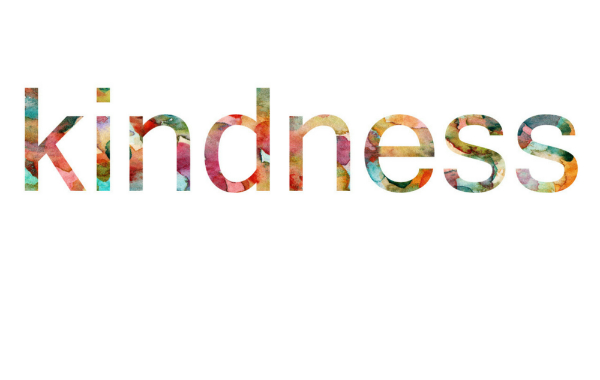
Helen Jeffries, who previously wrote for Result CIC about the impact of our Delta programme, is currently a Deputy Director working on healthcare for Ukrainian refugees in the Department of Health and Social Care. After coaching from Hormoz, Helen reflected on what kindness means as a managerial quality. Here, we reproduce a blog she wrote about it, with her kind permission.
I’ve written about how I don’t believe leadership should be all about me and about empowering people, autistically but underpinning those two is something else that’s a bit of a dirty word in management: kindness. It’s easy to imagine kindness means being afraid to risk upsetting someone by naming a difficult truth, but that’s not what I mean. A more civil service expression for what I’m advocating could be “practising one’s being-a-decent-human-being competency” or indeed some aspects of “integrity“. It’s something about having a moral compas, and thinking through actions to their consequences. I like to think (hope) that an autistic brain can make this easier.
When a coach first suggested to me that one of my values was kindness (hat tip the very wonderful Hormoz Ahmadzadeh at Result CIC), I instinctively felt that that was something a manager shouldn’t be. I heard “kindness” as being an amalgam of “weakness” and “being too soft” and began to come up with excuses as to why I might be like that. My first thought was that kindness was a stereotypically female virtue and that I was playing into a female stereotype (with the allied suggestion that I shouldn’t be). My second thought was that as an autistic manager, I was over-compensating for autistic bluntness by going too far the other way.
On further reflection, though I realised that what “kindness” meant to me was being clear about what actually matters and what doesn’t. It’s a kind of focus on the outcome rather than the process. As an example, suppose a member of my team was distressed – and that has certainly happened in the last few difficult years with Covid and related matters to contend with. My autistic brain probably thinks:
- This person is upset – that’s going to disrupt their work and the work of everyone around them as we’ll all feel empathy and be unable to focus. Therefore, this person being distressed is the most significant thing happening right now.
- As a leader, I need to tackle the most important things affecting work and, therefore, the team. Which, right now, is a member of my team being upset.
- What is more, if I do something about this situation now, it’ll show the rest of the team that I take wellbeing seriously and will do as much for them if they also encounter difficulties. Which will probably make them more engaged with work.
- Given all those things, what can I do to help this person who is distressed?
That might sound very cold and calculating – and a lot of autistic thought processes come across like that to non-autistic people. But it’s also potentially a very helpful thought process because it screens out non-essentials. For example, I haven’t wasted any brain space thinking “I haven’t got time for someone to be upset now” – that’s not relevant as there’s no point wishing the world was other than it is. The person is upset – wishing they weren’t isn’t going to fix the problem. Nor have I wasted any time on “they really shouldn’t be upset – there’s no reason to be”. Again, not a helpful thought process as telling them they shouldn’t be upset would probably make the situation worse not better. I suppose it’s a hard-headed sort of looking at the actual problem and dealing with it rather than getting bogged down in “shoulds” and “if onlys”.
What I’ve set out isn’t to detract from the fact that I myself feel empathy for those around me – in fact many autistic people are hyper-sensitive to emotions around them. Possibly I’m actually focussed on getting everyone’s emotions back on an even keel largely for my own benefit as an autistic hyper-empath. And if that’s what I’m doing, I’m justifying it to myself using the thought process I’ve outlined above; it’s OK to look after my upset staff member (entirely for the benefit of my own emotions not out of any sense of virtue) because of the benefit to the business. That might all sound a bit convoluted and it’s certainly a potential example of autistic over-thinking things.
Anyhoo, I do think that an autistic focus on the outcome and the big picture can make for kindness in leadership. Ultimately the outcome any leader is aiming for is a high-performing team doing the most amount of useful work most efficiently. Keeping that goal in view means building up a deep understanding of the people you’re working with and what you’re trying to achieve. It also means not getting distracted by non-essentials such as excessive blame, or trying to make people be someone they’re not. Even if in the short term you have to do something potentially unkind (such as conveying a difficult message) it can still be directed to a long-term goal of kindness by being authentic, open and constructive. I realise this all sounds a bit like a sermon and I’m also still working out in my own mind what it is that I mean. But autistic big-picture and outcome-driven kindness might actually be a force for good in the world, and at any rate I’d like to get away from that assumption that “kindness” means short termism and weakness. I really don’t think it has to.
Read more blogs from Helen here.